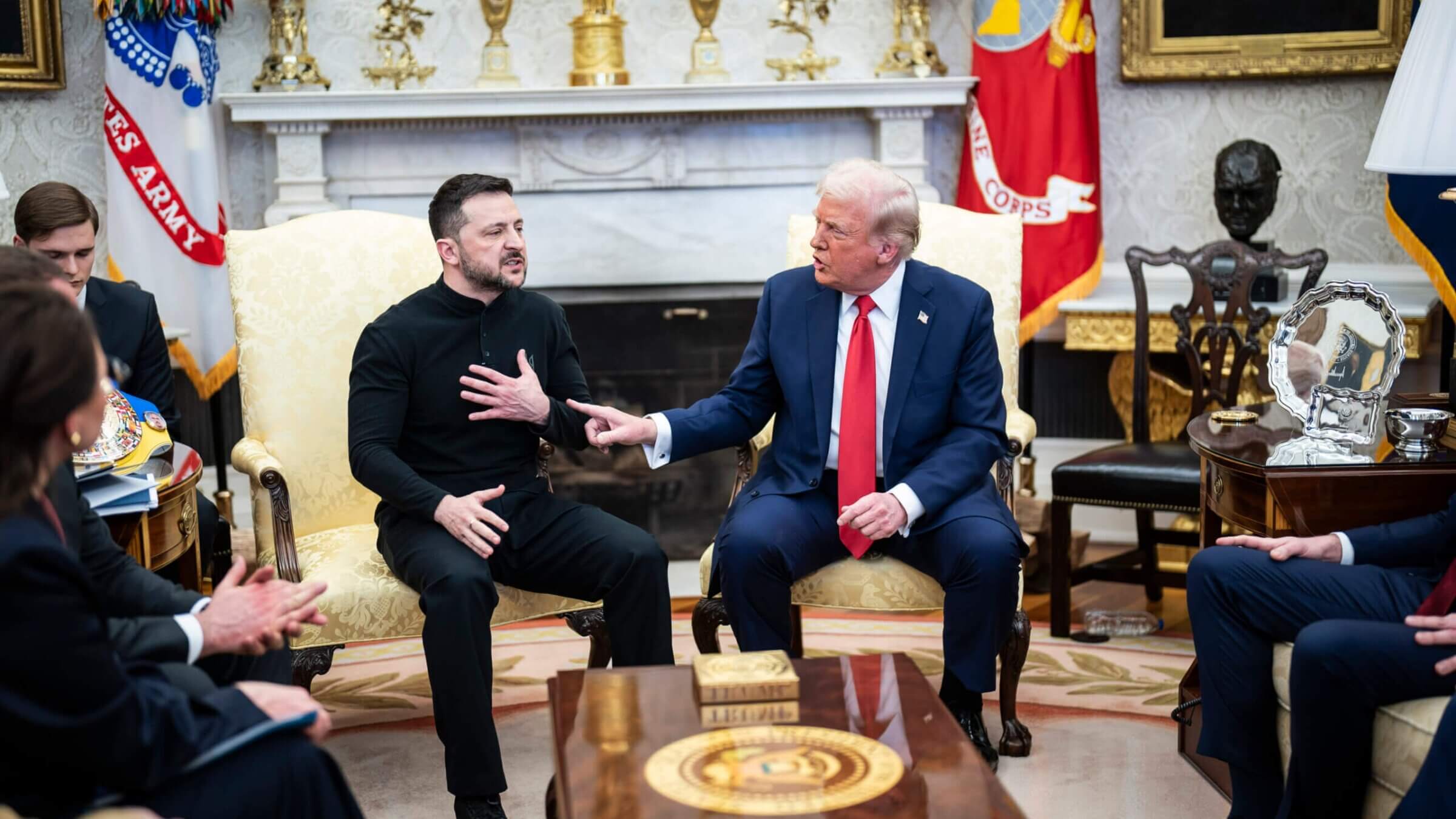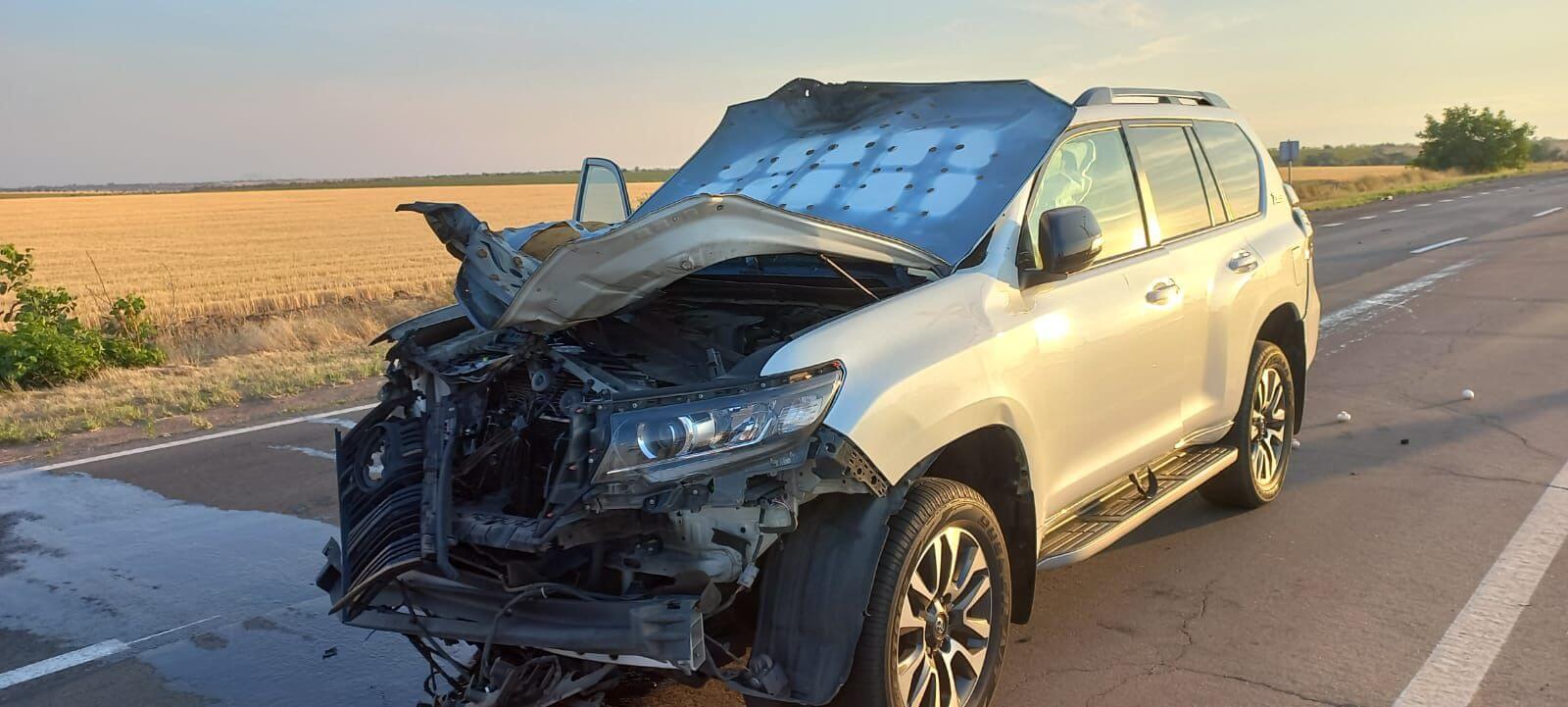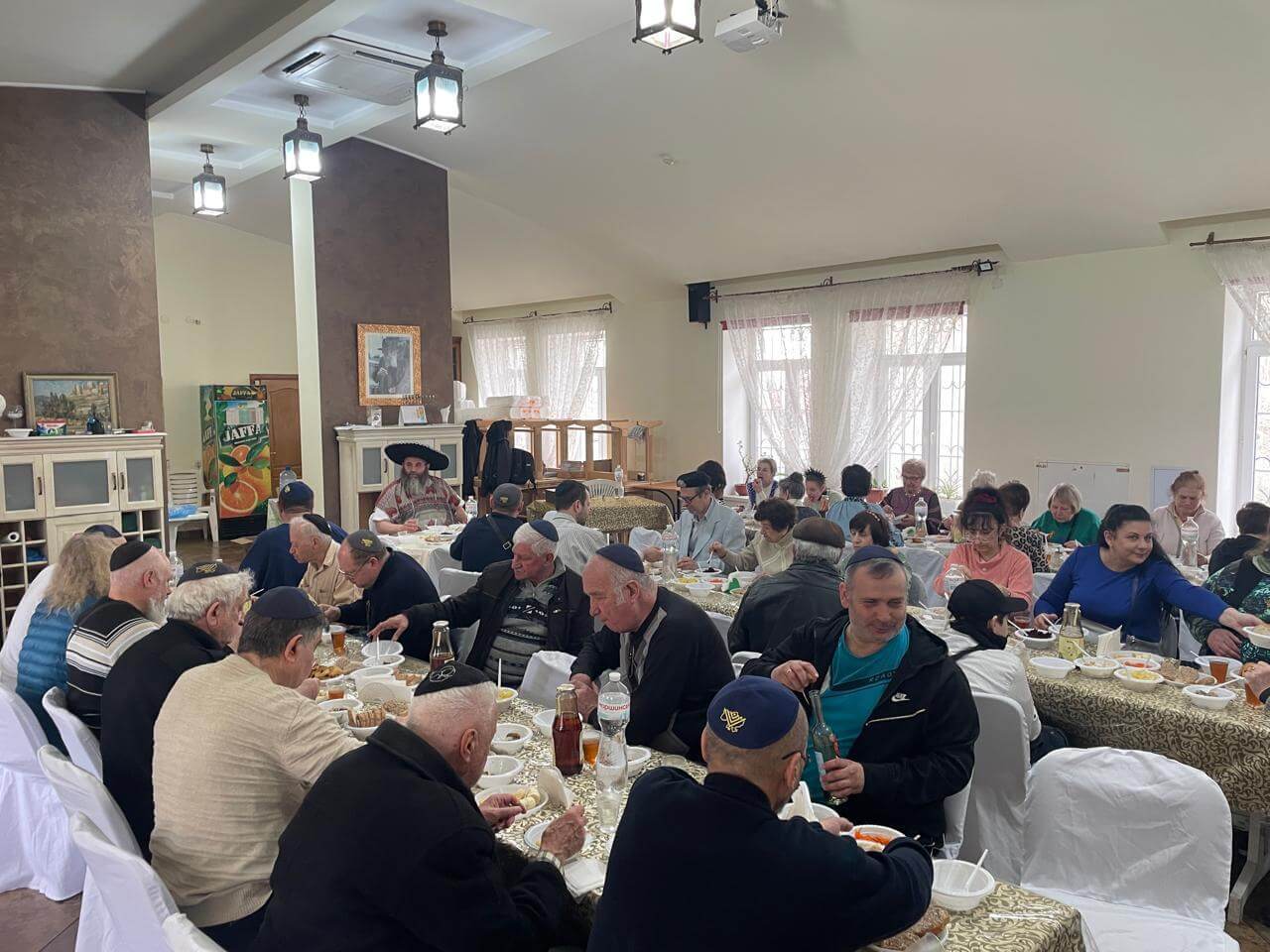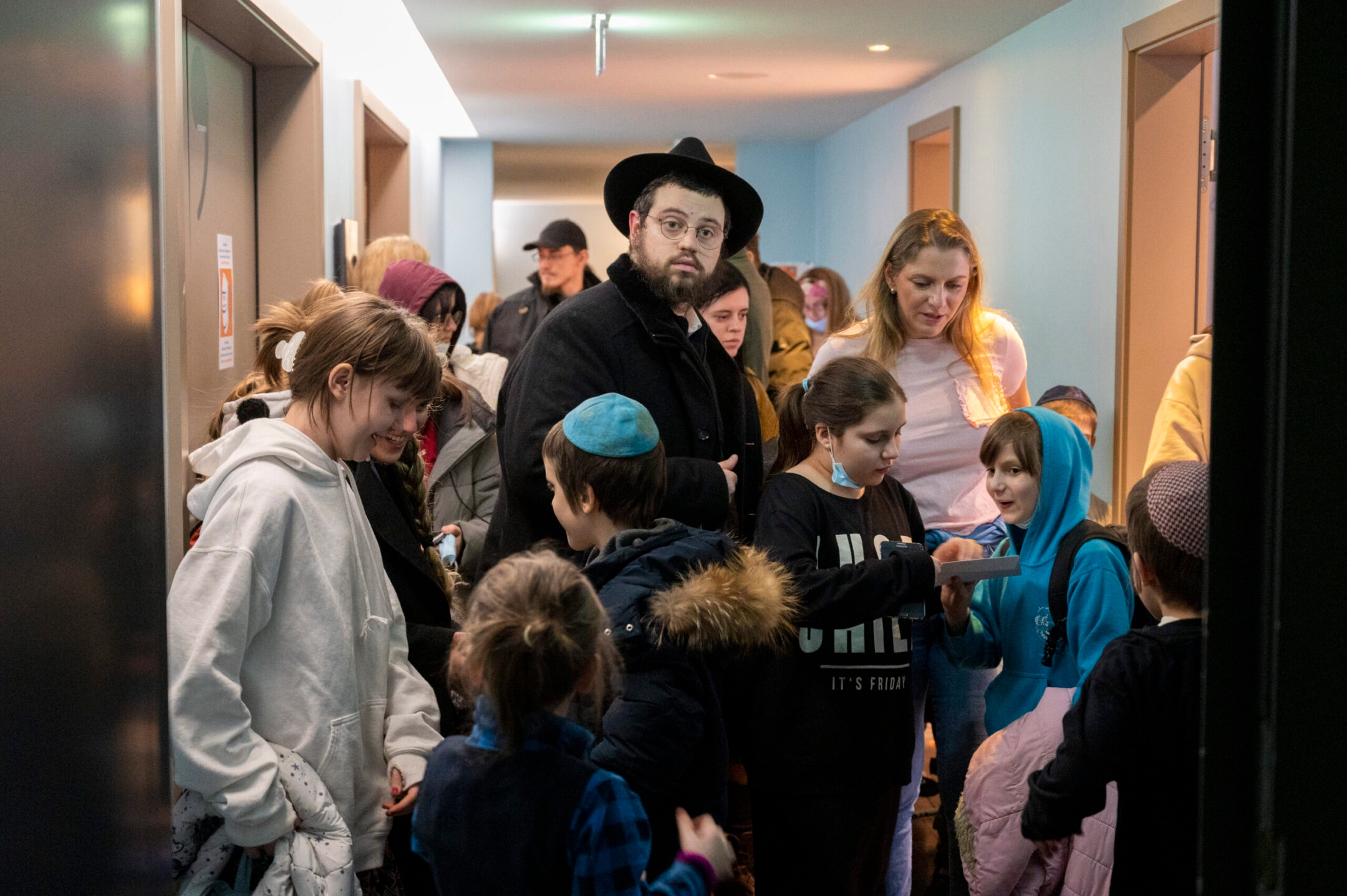Ukraine’s Jews and rabbis ‘on the front line’ as Zelenskyy meets with Trump
Rabbis in Kherson and Odesa describe Jewish life on the front line — funerals, blackouts, orphanages and a fragile faith in God’s plan

President Volodymyr Zelenskyy and President Donald Trump in the Oval Office in February 2025. Photo by Andrew Harnik/Getty Images
Rabbi Yosef Yitzchak Wolff was driving through Ukraine, from Odesa to Kherson, last month with his wife Chaya and their 19-year-old daughter Reizi when a Russian drone struck his white Toyota Land Cruiser.
“It was a boom,” Wolff recalled in an interview on Sunday. The attack is part of the constant danger Jews in Ukraine still face more than three years into the war. “This is not a movie,” he said. “This is real life.”
This week, their president enters a critical round of diplomacy. On Monday, President Volodymyr Zelenskyy — the Jewish wartime leader once hailed as a “modern Maccabee” — meets President Donald Trump at the White House. The summit follows Trump’s inconclusive meeting on Friday with President Vladimir Putin in Alaska, where Trump suggested Ukraine might cede territory to Russia — an idea that rattled Kyiv and its backers. European leaders, including France’s Emmanuel Macron and Britain’s Keir Starmer, will join Zelenskyy in Washington to show solidarity and press Ukraine’s case.
For Ukraine’s Jews, the stakes are immediate. A deal that entrenches Russian gains could consign Jewish communities in occupied areas to permanent exile. A fragile ceasefire could mean fewer rockets over Kherson or Odesa. Either way, the daily rhythm of Jewish life — already battered — hangs in the balance.

Kherson: ‘We are on the front line’
Wolff has led Kherson’s Chabad since 1993, when the Lubavitcher Rebbe dispatched him to build Jewish life in the southern Ukrainian city. Before the war, he estimated, Kherson had 10,000 Jews. Today, there are around 650. Most left soon after the war started, moving to Canada, the U.S., Israel, and across Europe, he said.
“There’s no siren. If something happens, it happens in seconds.”Yosef Yitzchak WolffRabbi of Kherson’s Chabad
From March to November 2022, Kherson was under Russian occupation. Then came the destruction of the Kakhovka Dam in June 2023, which flooded neighborhoods. The city sits divided by the Dnipro River, now with Ukrainian forces on one bank and Russian troops on the other.
“We are on the front line,” Wolff said. “If somebody’s shooting from the other side, it takes maybe five seconds to arrive. That’s why there’s no siren. If something happens, it happens in seconds.”

Jewish practice continues, though adapted. Daily morning and afternoon prayers draw 15 to 20 men. Friday night services are impossible: “Even a couple hours before the 8 p.m. curfew, there’s nobody on the street because everybody is running to get home,” Wolff said. On Shabbat mornings, 60 to 80 gather. During Simchat Torah, he organized a rushed nighttime minyan for hakafot, the traditional celebratory dancing on the festival — “very happy, very short.”
Odesa: ‘Everything is a balagan’
Roughly 100 miles west, Wolff’s nephew, Rabbi Mendy Wolff, helps lead Odesa’s sprawling Chabad network. Born in Israel but raised in Odesa from infancy, the 28-year-old now has three children of his own there — including twins born during the war. The hospital where they were delivered was bombed by Russian forces just months later.
“Everything is a balagan,” he said, using the Hebrew word for “chaos.”
Odesa once boasted 50,000 Jews; today, perhaps 20,000 remain. With so many gone, Jewish life “is like 25 years ago,” the younger Wolff said. Restaurants and businesses that once catered to observant Jews have closed. “The synagogue is thinner. We have to rebuild the Jewish community from the beginning.”
The city’s Jewish landmarks have also come under fire. Earlier this month, a Russian drone struck the historic Nachlas Eliezer Synagogue — built in 1898 — sparking a blaze that caused significant damage, though no injuries were reported.
“Before the war, people came to the rabbi for advice on a family issue. Now they come to charge their phone.”Mendy WolffChabad rabbi in Odesa
Yet paradoxically, war has also brought renewal. “A lot of people decided to send their kids to our Jewish school after the war started,” Wolff said. The kindergarten is expecting 78 students for the coming school year. “One good thing that came from the war: People realized they need a community.”
The work is relentless. Odesa’s Chabad runs an orphanage housing 124 Jewish children, newborn to 18 years old. At the start of the war, they evacuated the orphans to Berlin for safety. But costs mounted, and in 2023 they returned to Odesa. “We take care of them 24/7 — psychologists, doctors, everything they need,” Wolff said.

The war intrudes constantly. On Friday, a member of Odesa’s Jewish community was killed in battle. His funeral is Monday.
The practical hardships are more mundane. With power outages frequent, Chabad’s generators have turned synagogues into lifelines. “Before the war, people came to the rabbi for advice on a family issue,” Wolff said. “Now they come to charge their phone.”
During the early years of the war, Odesa’s Jews rented hotels over Passover so curfew would not prevent nighttime Seders. Chabad hosted Seders in the same hotel in 2022, 2023 and 2024. In 2025, shortly before Passover, Russia bombed the hotel.
“We try to make lemonade out of lemons,” Wolff said, an ethos that has guided the community through displacement, blackouts and loss.
Politics and providence
Neither Wolff would speculate on Zelenskyy’s White House trip. Instead, the younger one framed politics through faith.
“King Solomon said, ‘God runs the hearts of kings and ministers,’” he explained, referencing Proverbs 21:1. “So whatever will happen will happen because God wants it to. And so we pray to God.”
Three and a half years after Russia’s invasion forced 10 million Ukrainians to flee — Europe’s largest refugee crisis since World War II — Jewish Ukraine is diminished but not extinguished. There are still minyans, orphanages, kindergartens, funerals, weddings.
“We came to Odesa to help people grow,” Rabbi Mendy Wolff said. “And now we are busy helping people survive.”
“Our work changed 180 degrees,” he added. “But we are still needed in Odesa. Maybe more than ever.”















